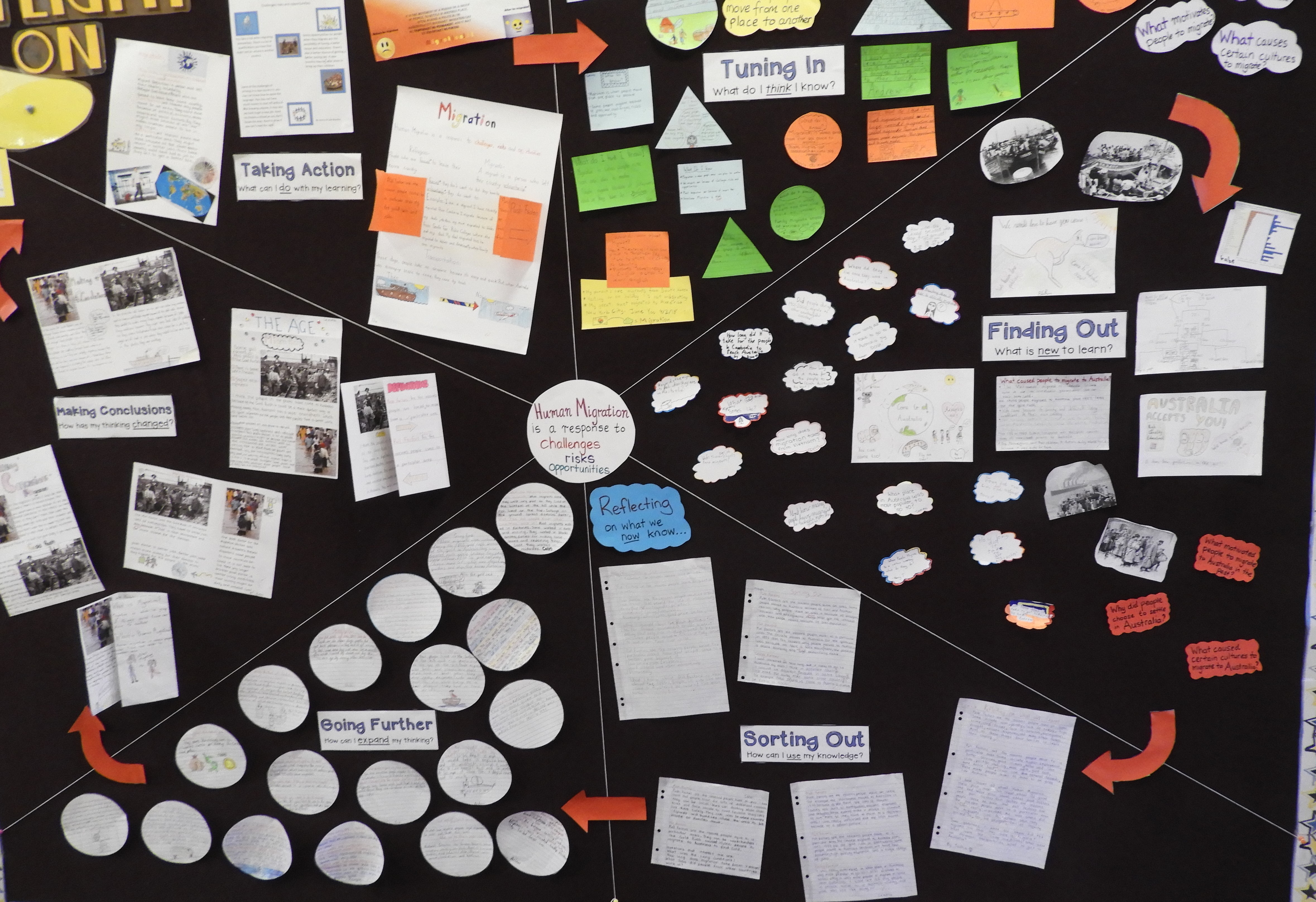What is Inquiry?
An old adage states: "Tell me and I forget, show me and I  remember, involve me and I understand." The last part of this statement is the essence of inquiry-based learning. Inquiry implies involvement that leads to understanding. Furthermore, involvement in learning implies possessing skills and attitudes that permit you to seek resolutions to questions and issues while you construct new knowledge.
remember, involve me and I understand." The last part of this statement is the essence of inquiry-based learning. Inquiry implies involvement that leads to understanding. Furthermore, involvement in learning implies possessing skills and attitudes that permit you to seek resolutions to questions and issues while you construct new knowledge.
Why Inquiry?
We have chosen to use an inquiry approach to learning as inquiry:
- Goes across and beyond subject areas.
- Pursues students’ interests.
- Recognises students’ prior understandings.
- Develops students’ higher order thinking and interpersonal skills.
- Engages students in real-world questions and problems.
- Develops students’ sense of agency and responsibility.
- Teaches students skills to safely locate, access, navigate, evaluate and use information.
- Is fun and enjoyable!
Transdisciplinary Themes
Each year, every student will inquire into the following transdisciplinary themes:
- Who we are
- Where we are in place and time
- How we express ourselves
- How the world works
- How we organise ourselves
- Sharing the planet
Students explore and learn about these globally significant issues, each of which addresses a central idea relevant to a particular transdisciplinary theme. Lines of inquiry are identified in order to explore the scope of the central idea for each unit.

Kath Murdoch’s Inquiry Cycle
We use the Kath Murdoch Cycle to help guide students in their learning and gives them a framework to think and talk about their own inquiry journey.
The phases are:
Tuning In- to provoke interest and curiosity; gather data about student’s existing thinking and knowledge; and help students make connections with the key concepts.
Finding Out- to gather new information to address student’s questions; develop research skills; stimulate curiosity through new information; and learning how to effectively record information gathered.
Sorting Out- to comprehend and make meaning of the information gathered; reveal new thinking and deeper understanding; and review/revise early thinking.
Going Further- to pursue questions and interests arising from the journey so far.
Making Connections- to think about their learning, how they learn and why; identify changes in skills, knowledge and values; and draw conclusions and make connections between ideas.
Taking Action- for students to take and lead action based on what has been learnt throughout the inquiry.
